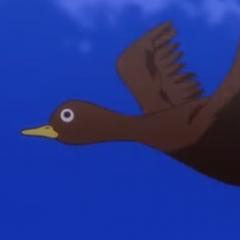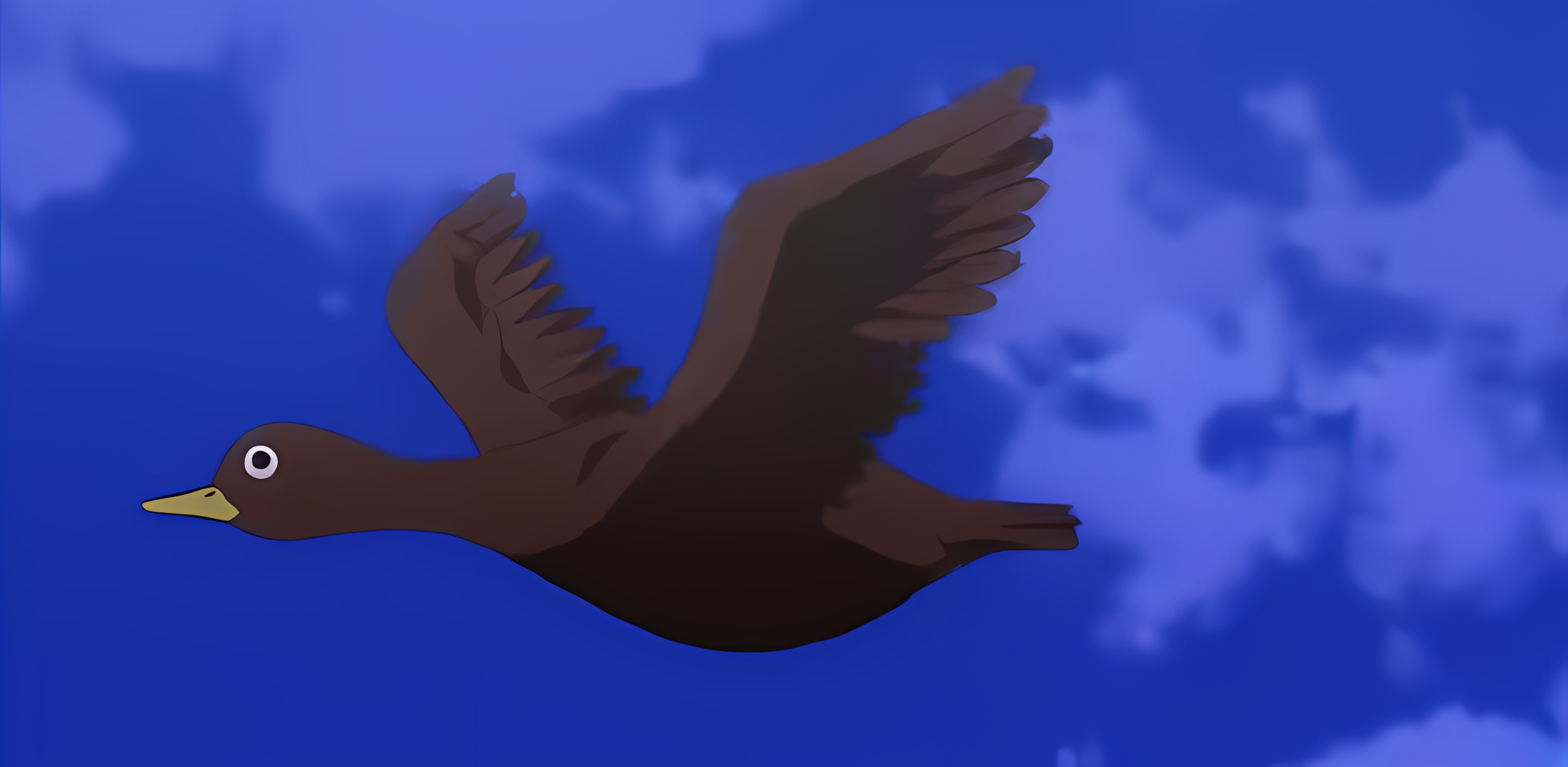-
Posts
42 -
Joined
-
Last visited
-
Days Won
4
Content Type
Profiles
Forums
Blogs
Events
Everything posted by Anonym271
-
Are the original files smaller than 4 GB and the new ones bigger? If so, I guess the archive format only supports files up to 4 GB (2 GB may also be a possible limit). The format probably contains support for a compression algorithm that was used to compress the original archives but your repacker didn't implement this compression. This is why your new files are so much bigger and probably also why they exceed the maximum supported size of the archive format while the original ones didn't.
-
I am not sure if I understood this correctly, but if you have the ISO of the game you should probably install it from this ISO first (mount it and then run the installer). After that navigate to the directory where you installed the game and then into "GameData". There you will find some .pack archives that contain the game files. You can unpack them using GARbro, but for repacking you will need to use another tool (I found this one after a quick search). The scripts are in the "data4.pack" archive, have a .s extension and are Shift-JIS encoded (I suggest editing them using Notepad++).
-

Extracting text from .bin files
Anonym271 replied to Cibermoon's topic in Fan Translation Discussion
Finally: first version of a tool that lets you edit the scripts. As always, you can find the release here. It is designed to doing a little bit more than just editing dialog texts in the future (maybe...), but for now the thing you want to do is: Open the .scn file you want to edit (they contain the texts and are stored under dat/<your-language>/ui/scn/) Click on "Dialogs" > "Export..." to export them into a JSON file. Edit them to you desire Open the same .scn file in the SceneEditor again (if you closed it meanwhile) Click "Dialogs" > "Import" and select your edited JSON file Click "File" > "Save" (or "Save as") In theory, you could also edit the texts directly in the program (I recommend to enable "View" > "Hide Unknown Instructions" for this), but I guess having everything in one text file might be a little bit more comfortable. When you edit the JSONs you should remember to escape your quotation marks (") with a backslash (\") so that they don't destroy the JSON document. And of course: make backups of everything before overwriting the game files, stuff might not work correctly If you encounter any problems or find dialog parts that are not present in the exported files (some of them might be using different instructions that I didn't see yet), just tell me and I will try to fix it. Also, tell me if the JSON format is too uncomfortable to edit. It was just the easiest to export and import for me, so I chose this format. -

Extracting text from .bin files
Anonym271 replied to Cibermoon's topic in Fan Translation Discussion
I decided that the TBX archives are better to manage using a GUI so I created a TBX Editor using .NET Framework. You can download it here (it should be running natively. If not, tell me!). It should be relatively self explanatory: Use "Open" to open a TBX file Use "Save" to save it Use "New" to clear the window Use "Import" / "Export" to add / remove images Use "Move Up" / "Move Down" to move the images in the archive (the order matters!) You can also drag images into the image list on the left to import them / drag them out into your explorer to export them. The tool for the scripts will probably also be a GUI tool since this would mean that I don't have to write a complete script compiler. This also means that you would have to edit the scripts directly in the program (or at least copy them into it after translating). Maybe I decide otherwise when it comes to it, but that just as information -

Extracting text from .bin files
Anonym271 replied to Cibermoon's topic in Fan Translation Discussion
Well, to be honest: this is less about security (I know that I did not code a virus) than about my coding honor -

Extracting text from .bin files
Anonym271 replied to Cibermoon's topic in Fan Translation Discussion
Repacking works now but I have one problem: Kaspersky is convinced that I have developed super-malicious ransomware and to be honest: looking at this crappy code it probably cannot imagine that a person wrote this with something good in mind Anyway, I am not going to publish a binary release as long as the code is "malicious"... -

Extracting text from .bin files
Anonym271 replied to Cibermoon's topic in Fan Translation Discussion
Just a quick update: you might have noticed that there are some ".tbx" files in the archives. These are just simple "bundles" of TBG images and the tbg tool now supports extracting them. Repacking will follow today. From now on you can just always find the newest binary releases under the release section of the repository ("farc" is the archive tool, "tbg" the one for tbg + tbx). I will post a note here everytime something important changes, though. I hope to make progress with the scripts today, too, but I can't promise anything. -

Extracting text from .bin files
Anonym271 replied to Cibermoon's topic in Fan Translation Discussion
Sure, as soon as I have finished this one -

Extracting text from .bin files
Anonym271 replied to Cibermoon's topic in Fan Translation Discussion
No big deal, I'm having a lot of fun doing this. And I'm making progress on the script extraction, too. I guess I might be able to give you a tool for the texts in the next days (no promises, though :D) -

Extracting text from .bin files
Anonym271 replied to Cibermoon's topic in Fan Translation Discussion
Okay, sure. You don't need to know anything about C++, that's why I deliver the binaries. They are regular .exe files, you can just download and execute them. They are command line tools, so you need to use them in the command line (no shit). I suppose you are using Windows, so here is a short introduction: The easiest option to open the command line at a desired location is probably the following: open the file explorer, navigate into the folder where the .exe file (and the target .bin files) are located and then just type "cmd.exe" in the address field. This will open you a command prompt at the current folder. Then you are ready to use the tools. Command line tools always work in the following manner: enter the name of the executable (e.g. "7scarlet_win64.exe") and after that the options you want to give to the program (separated by spaces). Options are usually indicated by a minus and then the name / character that describes the option. If an option requires additional information (e.g. a file name) these are submitted right after that (again, space separated). The both tools I have created so far have the following usage manners: The archive tool: Has options to pack (`-p`) and extract (`-e`) archives so far. So extracting an archive would look like this: 7scarlet_win64.exe -e my_archive.bin my\extraction\folder The first option "-e" tells the program that you want to extract something, then the archive you want to extract ("my_archive.bin") and finally the folder you want it to be extracted to. If you omit the destination folder it will just create a folder named like your input archive ("my_archive" in this case). Repacking works in the same manner: 7scarlet_win64.exe -p my_folder dest_archive.bin This will pack all contents of the directory "my_folder" into the archive "dest_archive.bin" Additionally: if you don't specify a mode (extraction or repacking) the program will choose extraction. So if you input just one argument (e.g. "7scarlet_win64.exe my_archive.bin") without any additional information it will extract the specified archive to the respective folder. The image tool: The image tool works very simple. Every argument you give it will be treated as a file input and it will convert each file into the other format (png to tbg and vice versa). So converting some tgb images into png would look like: tbg.exe image1.tbg image2.tbg image3.tbg Drag and Drop: If you just drag and drop files on an program, Windows will start this program with the files as arguments. So dropping the three image files above on the "tbg.exe" executable will internally produce exactly this command. This means: You can drop a .bin archive onto the extractor executable to extract it to a folder named like the archive file You can drop as many png / tbg image files onto the image tool's .exe to convert them between the two image formats. One last tip: most command line tools display a help or usage message if you start them without arguments (or often with the argument "-h" for help). This message usually describes how the program should be used. But keep in mind that the also just print it to the command line, so you have to execute them in an open command line. If you just double click a command line tool you will only see the command prompt popping up for half a second and closing again before you can read the text. -

Extracting text from .bin files
Anonym271 replied to Cibermoon's topic in Fan Translation Discussion
New version is out. First of all, the old one didn't extract correctly because I was stupid (didn't open the output file stream in binary mode). This is fixed now. Second: you can now repack archives (without compression though) and the game seems to accept them so far. Tell me if you encounter any strange behaviour. You can find the new version again in the repo (also with binary releases). Next I'm trying to convert the .tbg files to PNGs. Back-conversion might not even be necessary as the game seems to accept PNGs, too - as far as I could see for now. Edit: Back-conversion is necessary but I made a simple TGB/PNG converter, you can download it here (source is also in the repo). You can just drag and drop png/tgb file(s) on it to convert them vice versa. It's rather slow and crappy coded and I am going to improve it, but I guess you can already do much with these two tools. Scripts will be a bit tricky though since they seem to be compiled in some way. -

Extracting text from .bin files
Anonym271 replied to Cibermoon's topic in Fan Translation Discussion
Okay, I looked into the files and could not find any extractors so I decided to write them myself. Here is the GitHub repo I created: https://github.com/Anonym271/7scarlet-tools And the binares: x86 | x64 For now, it only extracts the files (and I haven't tested it much for now), but I will continue investigating them to understand the different file formats. I will keep you updated as soon as I got something new working. Have fun for now! -

Fan Translator Skills Registration
Anonym271 replied to Clephas's topic in Fan Translation Discussion
1) Handle (the one you use or plan to use): Anonym2712) Positions you can fill: Resource extraction, repacking, coding and reverse engineering 3) Types of projects (VNs) preferred: Anything4) Availability: Primarily weekend5) VNs most interested in producing an ftl for: Tropical Kiss (this is what I recently created tools for. But I really do anything)6) Motivation for joining in on ftl: Having a lot of fun investigating resource and scripting systems of VN engines and wanting to share my results7) Conditions: None. I am not a translator, I don't even speak Japanese. But if someone of you needs one who has fun writing some extraction and repacking tools for unknown resource archives etc., just contact me. If this doesn't fit in here (because you just want translators or something like that), I'm sorry. Just delete it then. -
Hey together, I hope this is the right place. I have created a collection of tools for the game "Tropical Kiss" (https://vndb.org/v2516) and thought they might be helpful here. You can extract and repack all the .pak files the game uses as well as disassemble the scripts in the file called "Scenario.dat". And now I finally also managed to write a compiler that re-assembles the modified scripts to work for the game. Link to the GitHub repository: https://github.com/Anonym271/ts-system-tools The disassembled scripts are not really comfortable to write new scenarios with, but translation should be possible without any doubt. It is a rather old eroge, so I'm not sure if anyone is even interested in translating it or anything but I still thought this might be helpful here.






